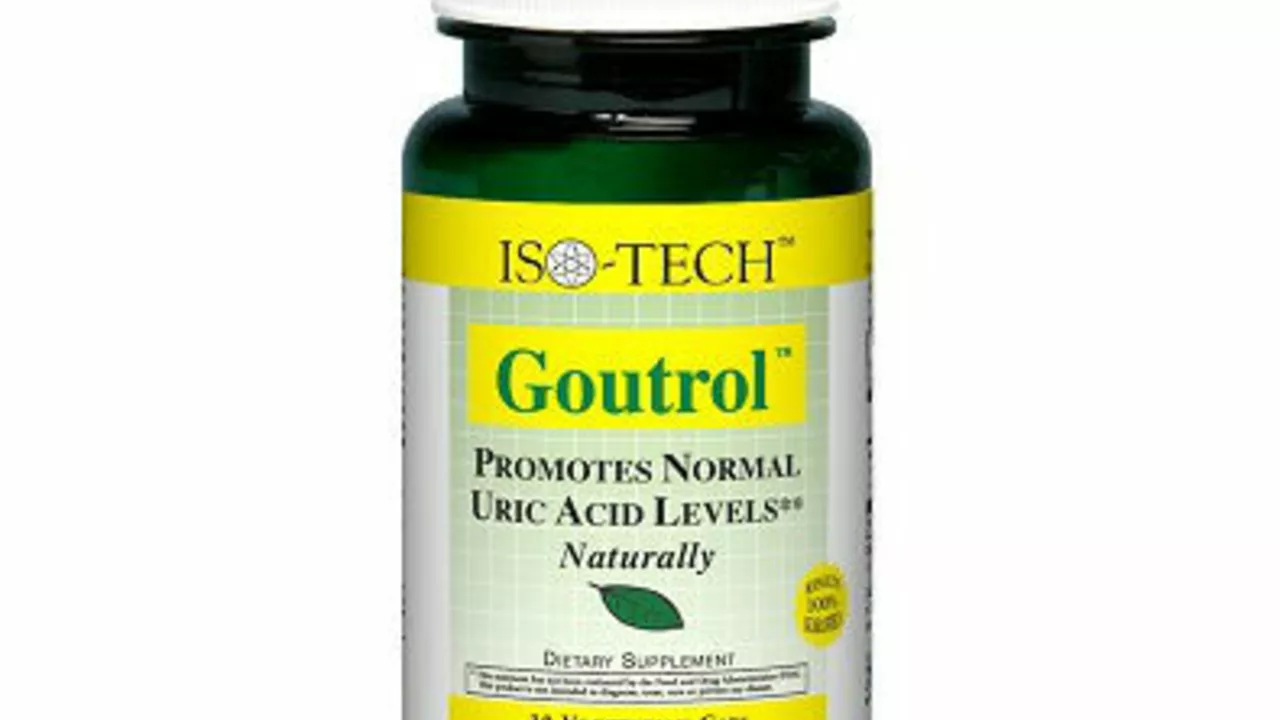
Understanding Uric Acid
Before we delve into the role of supplements in managing high uric acid levels, it is essential to understand what uric acid is. Uric acid is a waste product that is naturally present in our body. It's produced when our body breaks down purines, substances found in certain foods and drinks. Under normal circumstances, uric acid dissolves in the blood, passes through the kidneys, and is excreted in urine. However, when the body produces too much uric acid or doesn't excrete enough, the uric acid levels in the blood can increase, leading to a condition known as hyperuricemia.
Effects of High Uric Acid Levels
High uric acid levels can pave the way for numerous health complications. It can result in painful gout, kidney stones, and in more severe cases, kidney failure. It's also associated with hypertension, heart disease, and certain types of cancer. Therefore, managing uric acid levels is crucial for overall health.
The Importance of Diet
One of the primary methods to control uric acid levels is by making dietary modifications. This includes reducing the intake of high-purine foods and alcohol, which can increase uric acid production. Simultaneously, increasing the consumption of water and other fluids can help in flushing out excess uric acid from the body. However, diet alone might not be sufficient, especially in cases of severe hyperuricemia. This is where supplements come into play.
Introduction to Supplements
Supplements are products designed to provide nutrients that may not be consumed in sufficient amounts from food. They can be beneficial for managing high uric acid levels as they can aid in reducing its production or enhancing its excretion.
Vitamin C
Vitamin C is one of the most commonly recommended supplements for high uric acid levels. Research suggests that Vitamin C can help in lowering uric acid levels by enhancing its excretion through the kidneys. Besides, Vitamin C has potent antioxidant properties that can protect against the damage caused by high uric acid levels.
Folic Acid
Folic acid, a type of B vitamin, is another supplement that can play a significant role in managing high uric acid levels. It is believed to stimulate an enzyme that helps in breaking down uric acid. However, the use of folic acid for this purpose remains somewhat controversial, and further research is needed to establish its efficacy.
Omega-3 Fatty Acids
Omega-3 fatty acids, commonly found in fish oil supplements, can also aid in controlling uric acid levels. They have potent anti-inflammatory properties and can help in reducing the inflammation caused by gout- a common symptom of high uric acid levels. Moreover, some studies suggest that omega-3 fatty acids can help in lowering uric acid levels, although more research is needed in this area.
Other Supplements
Several other supplements like magnesium, cherry extract, and celery seed extract have shown potential in managing high uric acid levels. These supplements work by reducing uric acid production or promoting its excretion. However, it's important to note that while these supplements can help, they should not replace conventional treatment methods.
Conclusion: The Role of Supplements in Managing High Uric Acid Levels
In conclusion, supplements can play a significant role in managing high uric acid levels. They can aid in reducing uric acid production, enhancing its excretion, and mitigating the harmful effects of high uric acid levels. However, they should be used as a part of a comprehensive management plan that includes dietary modifications and conventional treatment methods. Always consult with a healthcare provider before starting any supplement regimen to ensure it's safe and appropriate for your specific needs.
Write a comment
RECENT POSTS
- Understanding Bursitis: Causes, Symptoms, and Treatment
- Unlocking the Power of Cialis Super Force: A Comprehensive Guide
- Clarithromycin and Gastroesophageal Reflux Disease (GERD): A Guide to Treatment
- The role of supplements in managing high uric acid levels
- The impact of budesonide on blood pressure and heart health
Written by Caspian Strydom
View all posts by: Caspian Strydom